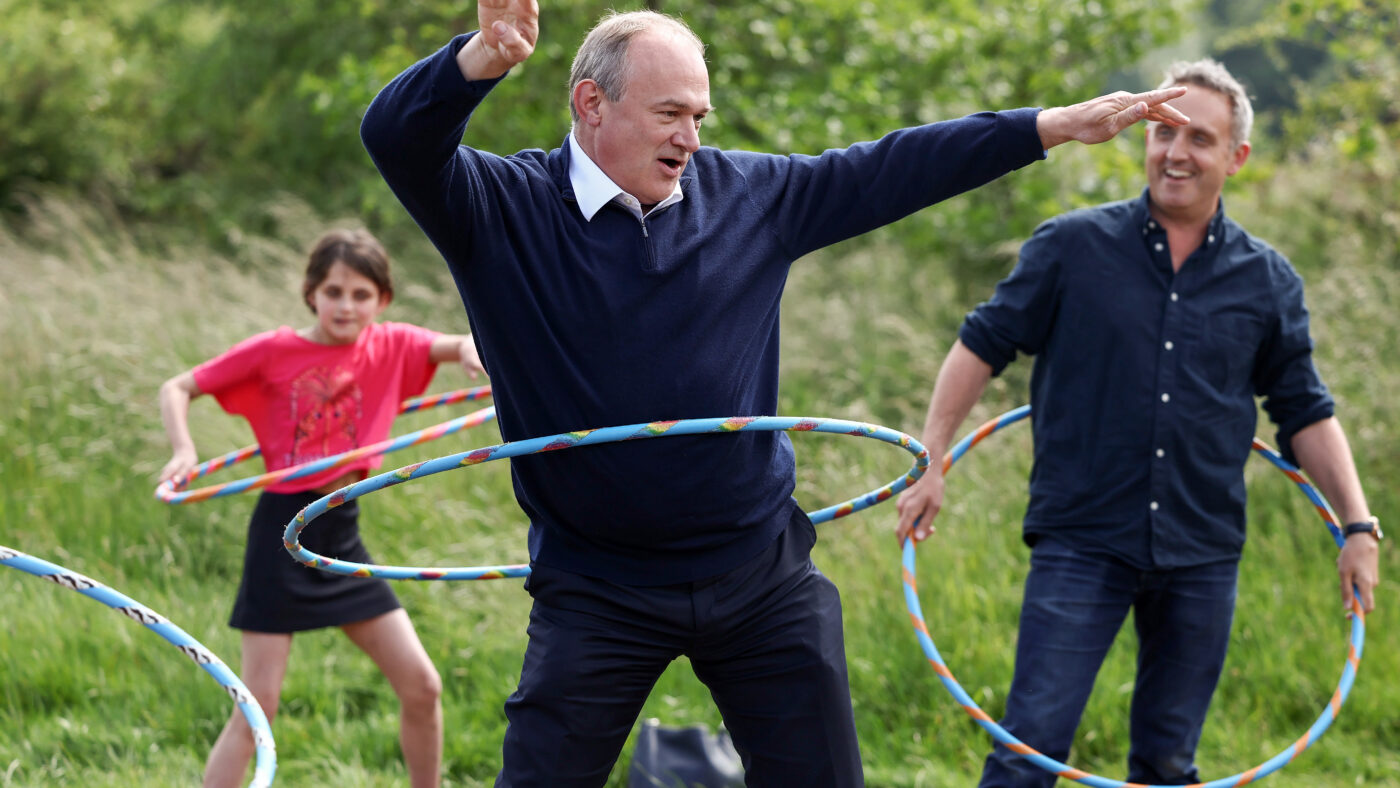If it’s risky to give a child a virtuous name, consider the quandary of political parties. Labour has enjoyed at best an on-off relationship with workers, while the Conservative and Unionist Party is currently best known for destroying ties with our neighbours. As for the Liberal Democrats, it’s possible neither of their names are accurate.
Some years ago, the presenter Andrew Neil asked Nick Clegg whether ‘democrat’ was the right word for a party so keen on ignoring the Brexit referendum. More recently it’s the ‘liberal’ side of the party’s name that’s been called into question, owing to its lukewarm commitment to personal responsibility.
While there’s a whiff of the middle-aged office worker clinging to a vestige of student radicalism, the Lib Dems are at least the only major party that wants to create a regulated market for cannabis. According to its manifesto, sales will be restricted to those aged 18 or above, with products available ‘from licensed retailers with strict limits on potency and THC content’.
THC, or tetrahydrocannabinol, is the psychoactive component associated with weed’s high, as well as various psychological problems. Strains of ‘skunk’ sold on the street tend to be especially laden with it, which is why the Lib Dem policy hopes that offering legal alternatives will undercut the black market.
This is liberal enough in a country that still bans most recreational drugs. But the policy sits uncomfortably with Lib Dem support for creating a ‘smoke-free generation’ by banning everyone from buying cigarettes if they were born after 2008, even when they reach adulthood.
While this policy was omitted from the Lib Dem manifesto, the party’s leader Ed Davey has continued to support it. Speaking to the BBC, he argued that the health arguments against cigarette smoking ‘are so overwhelming that if you’re serious about the NHS and you’re serious about what happens to families when they lose their parents, you just need to act’.
Davey added that backing these prohibitionist policies ‘was a real challenge for me, I’ll be honest with you, as a liberal’. And so it should be. The anti-tobacco policies he’s backed are decidedly illiberal, with the claim to consistency on banning tobacco while regulating cannabis being simply bogus.
The Lib Dem leader is right about one thing: both policies are undergirded by a public health paternalism that has become ubiquitous among Britain’s major parties. Even under that famous libertine Boris Johnson, a wave of finickity restrictions on junk food sales in supermarkets took shape, bolstering the sugar tax on soft drinks that his predecessor Theresa May implemented.
Labour have been willing accomplices, with London mayor Sadiq Khan making great play of banning advertisements for unhealthy food, lest the children should see them. With influential campaigners like doctor Chris van Tulleken trying to stigmatise ‘ultra-processed foods’, we can expect more of this in the next five years.
The signs are that the Lib Dems will be right behind them. The party’s manifesto wants junk food advertising to continue to be squeezed out of outdoor spots and pre-watershed TV advertising. Juice and milk drinks that have thus far escaped the sugar tax would be brought within the policy’s scope if Davey was in 10 Downing Street.
These are, however, mere warning shots when compared to the bombardment of the tobacco industry. Alongside a permanent ban on tobacco sales for the next generation, Labour has promised to ‘ban vapes from being branded and advertised to appeal to children’, and made positive noises about taking single-use vapes off shelves.
With both the Tories and Lib Dems agreeing, it means the three major parties are committed to the war on drugs when it comes to tobacco and e-cigarettes. Smokers and their retailers will find it harder to buy and sell smoking and vaping products whoever ends up in government next.
That is not consistent with the Lib Dem’s approach to cannabis, nor its justification for wanting a legal market. As the party’s own website acknowledges, the war on drugs ‘hasn’t stopped the supply of harmful drugs’, with trade instead falling to criminal gangs ‘doing enormous damage to our communities and the lives of young people’.
If you accept that the prohibition on cannabis has led to a flourishing illegal trade, you must expect to see similar trends if tobacco is banned. If people want to smoke they will find a way to do it, as we have already seen with cannabis and no doubt will see if the controls on tobacco are implemented. Arguing anything else is inconsistent.
The only consistency is that Davey believes individuals shouldn’t be allowed to choose what recreational drugs they take. This would be a disappointing stance from Conservatives who believe in personal responsibility or Labour politicians committed to tolerating people’s lifestyle choices. From the alleged ‘liberal’ party, it is damning on both counts.
Click here to subscribe to our daily briefing – the best pieces from CapX and across the web.
CapX depends on the generosity of its readers. If you value what we do, please consider making a donation.


